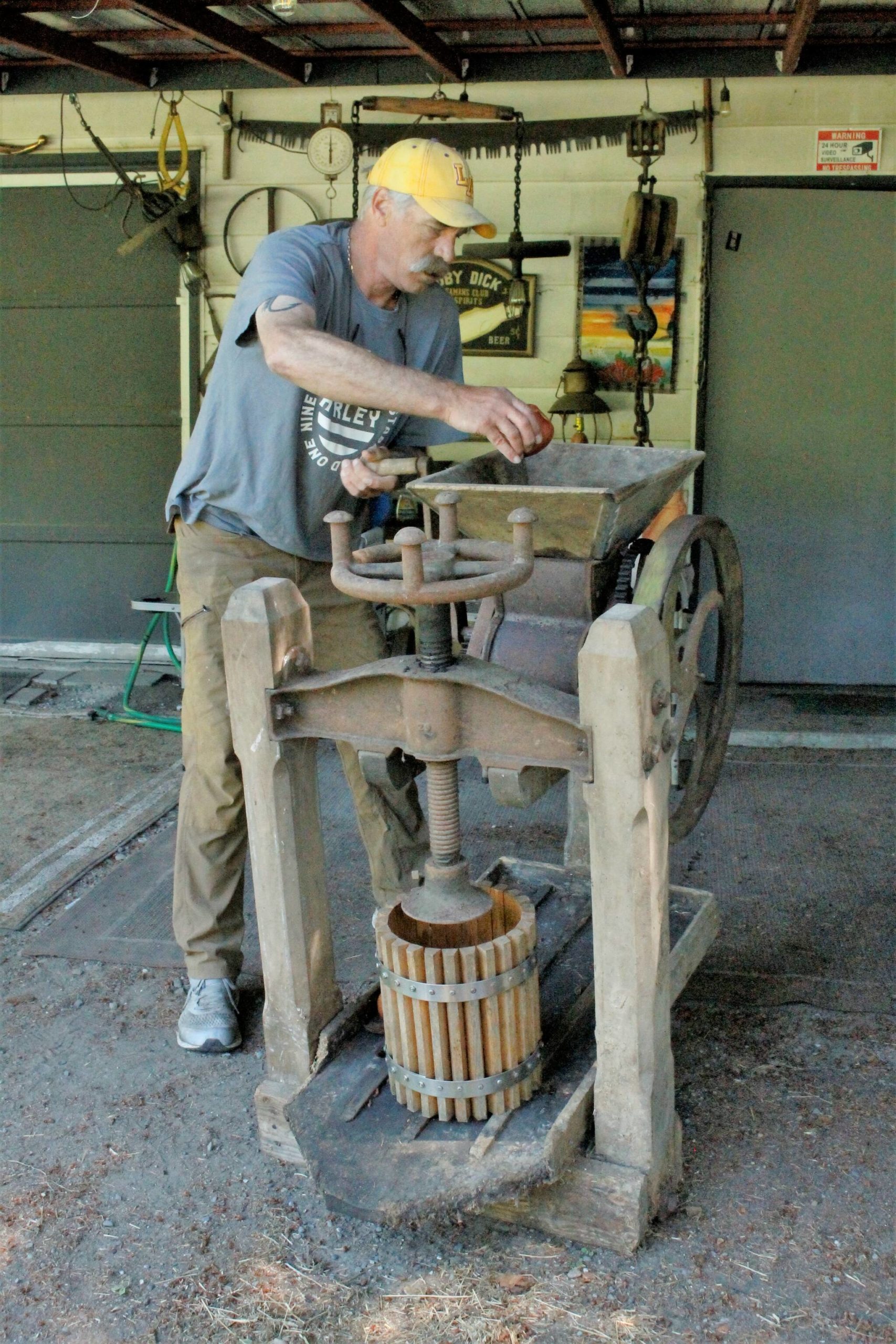This year, visitors to the Whidbey Island Fair’s antiques barn will be able to view a 150-year-old South Whidbey historic artifact that was recently unearthed.
While exploring a family farm in the Maxwelton Valley of South Whidbey, “picker” John Norris discovered a fruit press in a barn on the property. The heavy machinery – which Norris estimated weighs close to 300 pounds – was buried in hay and cow poop.
“I dug it out and found it. It’s sweet,” Norris said of his discovery.
Writing on the side of the press declares that it was manufactured by the Superior Drill Company in Springfield, Ohio in 1872.
The press is operated by two large cogs and is still functional to this day, although Norris has not yet tried it out. The press most likely crushed apples and grapes in its heyday.
“I thought it was a tractor because I saw that wheel,” Norris said of the largest cog on the press. “I thought it was an old engine, and it wasn’t. It was a freaking apple press.”
As a picker, Norris is in the business of finding valuable items in the collections of others. With this particular find, he intends to donate it to the South Whidbey Historical Society rather than resell it. He estimated its value to be somewhere between $800 to $1,500.
The fruit press will be on display at the antiques barn on the Whidbey Island Fairgrounds. This year’s fair runs July 28-31.
Norris came across the press at a 55-acre farm owned by the Luhn family. Albert Luhn, who passed away earlier this year, originally purchased the Maxwelton Valley farm in 1968 from the Cook family, who had previously purchased it from the Cunningham family, who started building on the property as early as the 1880s.
The Luhns have deep roots in South Whidbey history. Albert’s father, Richard, was a prominent realtor in downtown Langley and his grandfather, Albert Melsen, was the city’s mayor in the early 1900s and known as the “barefoot mayor.”
Albert Luhn and his family spent weekends and summers visiting the Maxwelton Valley farm, where he farmed cattle in his spare time. During the week he taught about electronics at Seattle community colleges. He eventually moved to Whidbey full-time in the 1980s.
The farm encompasses two houses, several barns and outbuildings. The house built in the 1880s by the farm’s original owners still stands, although it is in disarray and currently being cleaned out of the many objects collected in it over the years.
Jim Berto, Albert Luhn’s son-in-law, recalled living in the house as a young man when he did work for the farm. The upstairs could reach over 100 degrees in the summer.
One day Albert decided he was done living in the house and moved to the other home on the property. But his cats wouldn’t leave the old house, Berto said, so he continued leaving the heat and power on in the house for them.
Kim Berto, Albert’s daughter, recalled many happy memories about visiting the farm.
“This was a fairy tale place for me,” she said. “It was my fun place to play and ride horses.”



